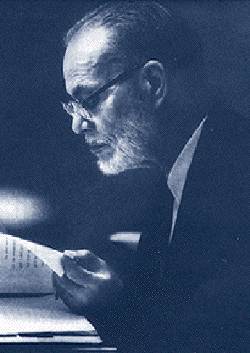 By Yasser Latif Hamdani
By Yasser Latif Hamdani
Last week (February 6) marked the 114th Birthday of one of Pakistan’s greatest unsung heroes. Once again, there was no mention of commemoration of his remarkable like. No sense of gratitude from a nation for which he did so much. He has been wiped out of our memory because he was an Ahmadi, despite his glorious contributions to Pakistan and its cause (see related post on Dr. Abdul Salam).
Sir Zafrullah Khan’s services rendered to Muslims of India, Pakistan and the Third World are second only to that of Quaid-e-Azam Mahomed Ali Jinnah. As a jurist, a diplomat and a patriot he stood head and shoulders above the lesser men who have made a mockery of our republic.
Born in 1893 in Sialkot in what was to become one of the earliest Ahmaddiya households, this small town boy rose to be one of the shrewdest legal minds of his time. His early education was in Sialkot, after which he proceeded to Lahore for his bachelors degree, under the tutelage of none other than the great Iqbal himself. He got his law degree from King’s College London in 1914, where he stood top of his class and was the first person from the Indian subcontinent to do so. He was, like most great figures of that time, called to bar at Lincoln’s Inn.
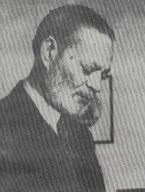
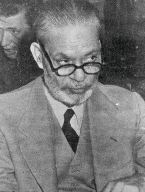
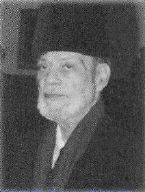


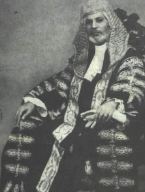
As a practicing lawyer, he soon proved his mettle and had many reported cases to his name. The first major politician to recognize Zafrullah’s talents was Sir Fazli Hussain, the founder of Unionist Party of Punjab. Starting his career in his early 30s as a member of the Punjab legislative Council, he rose to prominence as an indefatigable crusader for Muslims of Punjab. Later he represented the Muslims at round table conference and crossed swords with figures like Jinnah and Gandhi. In 1931, he became the Muslim League president and at the roundtable conference, he cornered no less a person than Churchill in a committee hearing who was forced to accept Zafrullah’s point of view.
Later he was offered a seat on Viceroy’s permanent Council, which he took to further his cause. He also served at varying times as the minister of Railways, Public works, labour and law under the Viceroy. For a brief period, he also became British India’s representative to the League of Nations, just before it was dissolved.
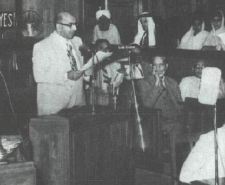
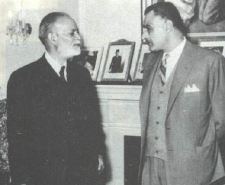
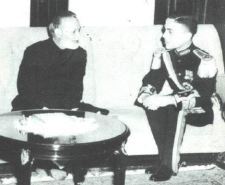
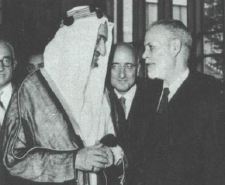
![]()
However his greatest contribution came when he drafted the famous Lahore Resolution, which till this day is the rallying point of Pakistan and Pakistani nationalism. He had been tasked with finding a common point between the popular demand for “Pakistan” and Muslim League’s all India requirements. The Lahore resolution was a broad based solution which left the door virtually open for several solutions and negotiation on the issue of partition. In essence it envisaged 2 or 3 great republics for the Muslim peoples and it was this document which forms the basis not just of Pakistan but also of Bangladesh. For this he got a lot of slack. No less a person than Khan Abdul Wali Khan highlighted Zafrullah’s religious belief to play on the popular conspiracy theory that holds Ahmadis to be British touts.
Later from 1942 onwards, he served as a federal judge (equivalent of an Supreme court C judge) of India and finally took leave on the eve of Pakistan to serve the cause of Pakistan before the Radcliffe Commission, on Jinnah’s personal request. On 25th December 1947, Jinnah appointed him the Foreign Minister of Pakistan. At the UN, Sir Zafrullah emerged as the most eloquent advocate of all third world and Islamic issues. It was Zafrullah whose efforts materialized into the UN Resolutions on Kashmir, which are the basis of the Pakistani case and grievance. Later he became the first Asian president of the International Court of Justice, a singular and unique honor for any Pakistani. He also served, briefly, as the President of the UN General Assembly. He passed away in September of 1983 in Lahore.
A prolific author on the history of Pakistan and Islam, his most famous book was titled “Agony of Pakistan” in which he makes plain the great betrayal which wrested the country from the hands of its patriots into the hands of those who were its greatest enemies. Ironically, today Jinnah’s most trusted lieutenant is not even remembered by the state which owes him so much, including its own founding document. It is the memory of people like Zafrullah Khan that will keep alive the original idea of Pakistan and there is no doubt that one day the posterity will reclaim its true destiny as a progressive and modern republic.
Yasser Latif Hamdani is a lawyer in Lahore and a researcher of the history of the Pakistan Movement.




















































ATP, I certainly hope that you will NOT be scared away from controversy. Please continue to write about what you consider important. Just make sure that a few zealots do not highjack the discussion. Certanly, please, do not let e few cyber-thugs scare you away from what you consider important (their behavior is no different from the ‘enforcers’ who come with dandas and sottis to scare people away in Universities in Pakistan and on New Years Parties). I am confident that ATP will not be scared away by them. Just shoo away this kind of ‘jiyallas’ and ‘terrors’.
Lets see what Quaid-e-Azam, Mohammad Ali Jinnah, like to see Pakistan
[quote post=”568″]1[quote post=”568″]) “Come forward as servants of Islam, organise the people economically, socially, educationally and politically and I am sure that you will be a power that will be accepted by everybody.â€
Thank you Administrator. Sorry, I did not see this before my last comment on JUI post. I can imagine how much of your time this must be wasting, but please try to just ban the people who repeatedly break the rules.
We are EXTREMELY concerned about the blatant disregard of our comment policy by most commenters here.
We do not have the time or the interest in babysitting every comment and dealing with repeated infringements is sapping too much time and energy – inappropriate language, personal attacks, excessively long comments, repitition, off-topic comments, childish personal rivalries, trying to sneak in inappropriate language through ‘creative’ spelling errors, petty bickering, whining and other childish tricks are NOT welcome here and are wasting too much of our time in monitoring and is beginning to turn away serious readers.
We assume we are dealing with reasonable and intelligent adults and would again request EVERYONE to behave as such. If you cannot, then please find some other place to go to.
Let’s not create a Frankenstein
[quote]
it was in Pakistan that a call was made in 1953 by Maulana Abul Ala Maududi, the founder President of Jamaat-e-Islami, to declare them as non-Muslims. The call emanated more from political expediency than religious fervour. The Ahmadis, although small in number, had a strong position in Pakistan; Lahore had been their stronghold. The foreign minister of Pakistan at the time was Sir Zafarullah Khan, an Ahmadi. So were many top brasses in the bureaucracy and military. Although they were 5% of the population, 20% of the total literate persons were Ahmadi. Maulana Maududi, a refugee from India, had no constituency in Pakistan so he had to create one. The campaign to declare the Ahmadis as ‘non-Muslim’ gave him his chance. Anti-Ahmadiyya riot swept across Pakistani Punjab. Pakistan, created in the name of Islam, was besmirched within six years of its creation with Muslim blood shed by fellow Muslims. Rioting was particularly severe in Lahore that resulted in the imposition of Martial Law in the city. That was also the beginning of the inroad of military in Pakistan politics.
[\quote]
http://www.thedailystar.net/suppliments/2005/indp2 005/indp03.htm